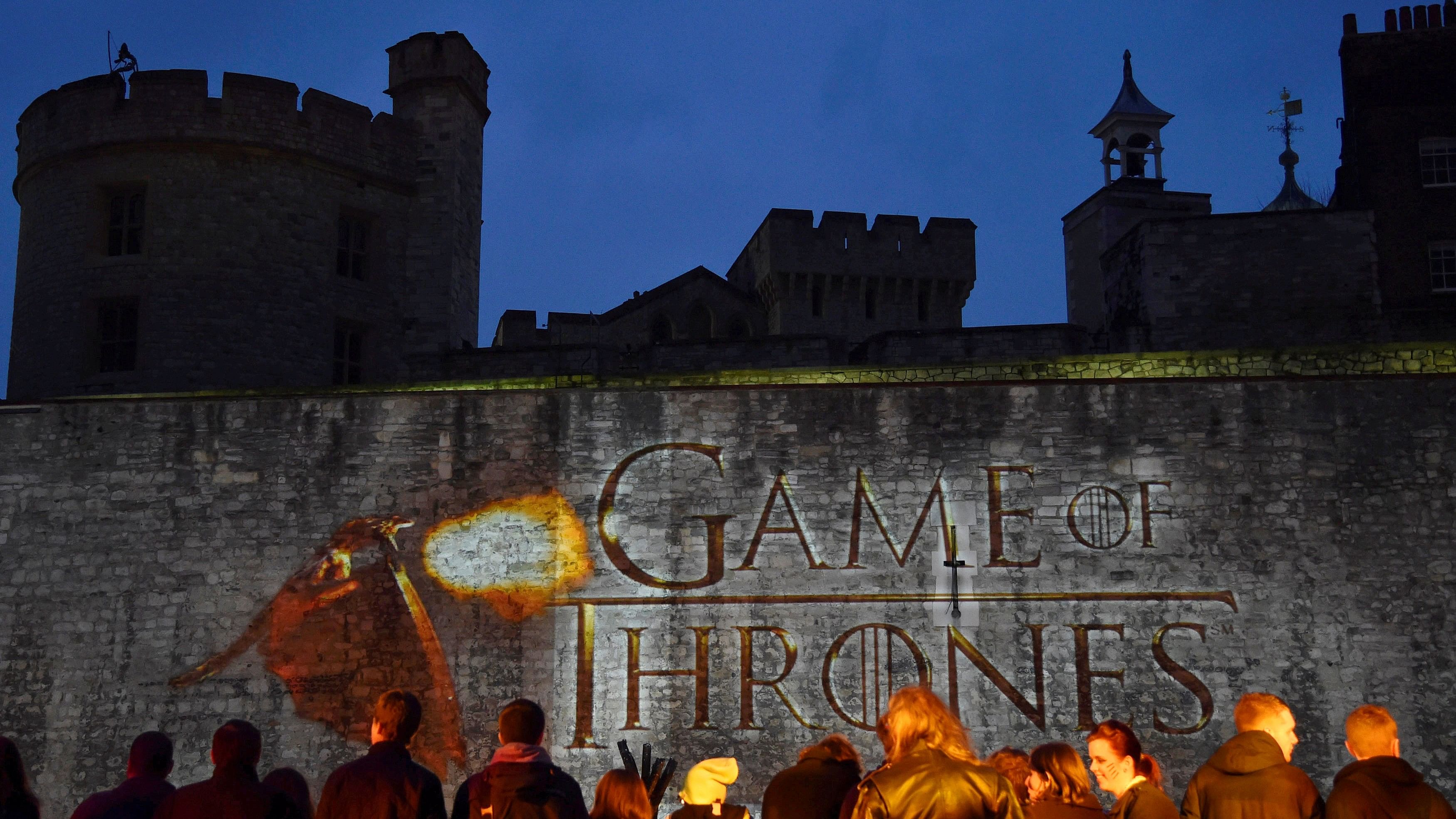
Fans wait for guests to arrive at the world premiere of the television fantasy drama 'Game of Thrones' season 5, at The Tower of London, in London, Britain March 18, 2015.
Credit: Reuters File Photo
The neurological process of facial recognition in humans is a complex one, but a new study has shed new light on this age-old mystery, albeit in an unorthodox way.
Using the iconic TV series Game of Thrones as material, the psychology department of the University of York recently conducted a study to glean insights into the processes at work behind facial recognition.
For the study, the researchers picked 70 respondents, half of whom had watched Game of Thrones and were familiar with the show's host of complex characters, while the other half had not. The researchers then proceeded to analyse their brain activity.
"We chose to show participants footage from Game of Thrones because the series captivated people around the world with its strong characters and their deeply nuanced personalities," said Kira Noad, lead author of the study, said in a press release.
Interestingly, whenever the lead characters appeared on screen, the researchers found that brain activity surged in participants who were familiar the characters. However, most of this increase in brain activity was observed in regions of the brain associated with non-visual knowledge, such as information about who they characters were and their deeds in the show.
Even among those who had not watched the show, a surge in brain activity connecting the visual and non-visual regions of the brain was reported.
Subsequently, to determine whether these brain regions were important for facial recognition, the researchers repeated the experiment on a group of peope with prosopagnosia or 'face blindless', a condition that reportedly affects one in 50 people.
This group, like the last one, consisted of half who had watched the series and half who had not.
In this group, however, the effect of familiarity was not found in the same regions of the brain as had been found in the 'neurotypical' group, which was consistent with the respondents' difficulty in recognising faces due to their condition. The researches also observed reduced connections between visual and non-visual regions of the brain among those with face blindless.
Commenting on the findings, Professor Tim Andrews said, “We were really excited to see the results of our study as they suggest that our ability to recognise faces relies on what we know about people, not just what they look like."
Explaining further, Prof Andrews said that while it was earlier believed that facial recognition depends on identifying visual properties, their study revealed that it, instead, "involves connecting a face with knowledge about the person, including their character traits, body language, our personal experiences with them, and our feelings towards them."
For those unaware, facial recognition isn't merely an ability to recognise others but has a very real impact on our social interactions—those who struggle to recognise faces often also struggle with isolation, anxiety, and emotional distress.